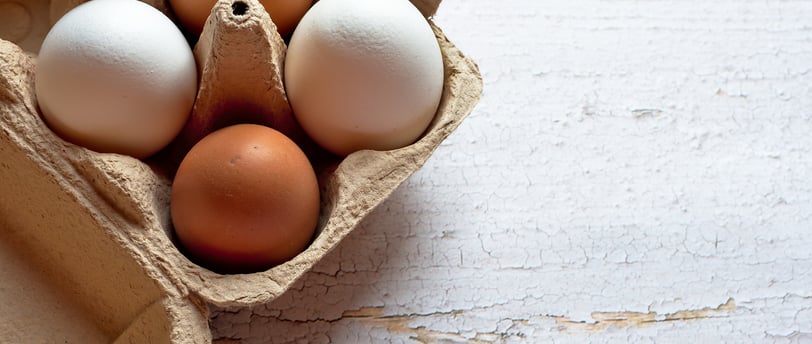Top 10 Sustainable Packaging: The Best Eco-Friendly Options for Organic Products
As consumers become increasingly conscious of their environmental impact, the demand for sustainable packaging has surged. For organic products, which prioritize environmental stewardship, choosing eco-friendly packaging is essential. Here are the top 10 sustainable packaging options that are setting the standard for eco-friendly solutions in the organic industry.
TOP 10
Fernando Chamila Jeewanee
3/18/20243 min read


1. Plastics that can decay
Plastics which are biodegradable break down faster than regular plastics and are usually made from plant products like cornstarch or sugarcane. These materials decompose into natural substances such as water, carbon dioxide and biomass thereby reducing their ecological impact. As a result, they make great packaging for snacks, dry goods and produce among others.
2. Packaging that can be composted
Compostable packing not only decomposes into natural components but also adds nutrients to the soil hence going a step further than other types of biodegradable options. It is commonly produced from PLA (polylactic acid), cellulose or cornstarch; therefore it is perfect for coffee pods food trays or takeaway containers among others.
3. Paper and Cardboard Recycling
Recycled paper and cardboard have become popular choices when it comes to sustainable packaging because they can be easily recycled again after use; this means that both materials are highly recyclable and also biodegradable – two characteristics necessary for ecological friendliness in any product. Cereals snacks personal care items etc., can all be packed using these kinds of wraps & boxes since availability varies with thicknesses as well textures depending on different needs.
4. Glass
Glass is considered as one most sustainable option we have got when talking about packages due to its infinite recyclability without losing quality at all – unlike other materials used for packing protection purposes during transportation which may deteriorate over time causing them lose their original properties hence becoming no longer fit enough even for single secondary usage too . The weightiness fragility nature along with ability recycle many times makes glass an excellent choice especially beverages sauces cosmetics etc., packaging .
5. Metal Containers
Metal cans including aluminum foil tins belong another category known under ecofriendly options available today because metals can always be recycled countless number times without degrading in quality ; aluminium being one of such examples where canning beverages or canned foods happens frequently . Transportation emissions are reduced significantly by lightweight metal packages like these during distribution stages since they tend take less space compared with heavier counterparts.
6. Films made from plants
Derived out renewable sources such as potatoes corn sugarcane etc., plant based films have been designed so that they become biodegradable after usage – this makes them perfect substitutes for conventional plastics used in flexible packaging (bags wraps) which often take centuries to decompose fully . Snacks baked goods fresh produce among other things could therefore be packed using plant-based films instead of traditional ones.
7. Mushroom Packs
Mycelium root structure combined with agricultural waste products results into mushroom packs; this material is fully compostable and can replace polystyrene foam as a sustainable alternative . Fragile electronics glassware during shipping need protection thus making mushroom packs ideal for such situations.
8. Reusable Packages
Glass jars tins made from metal cloth bags are some examples reusable package solutions that encourage circular economy practices through repeated use; bulk foods beverages personal care items etc., can all benefit greatly when put inside these types of containers because apart from reducing waste produced along value chain it also fosters sustainable consumer habits.
9. Edible Wraps
Edible wrappings denote an innovative concept where packaging materials should be safe enough eat too; they are created using ingredients like rice seaweed potato starch among others thereby achieving zero-waste goals within the food industry . Single-serving condiments candies snacks etc., might feature edible wraps although still at early stages promise holds bright future potentialities in store for them.
10. Bottles Made of Paper
Bottles made of paper are a new technology that combines recyclable qualities of paper with the strength of plastic. Usually, these bottles are produced from ecologically sourced paper and have a thin layer made from plastic materials to hold liquid substances. The areas where paper bottle is used most include beverages, personal care items and home detergents as it provides an eco-friendly alternative for conventional plastics.
Conclusion
Sustainability in packaging is important as it helps reduce the environmental impact caused by organic products. With such environmentally friendly choices available for packaging companies can satisfy customers’ needs for sustainability while also minimizing their carbon footprint. From biodegradable plastics to compostable materials or even creative ideas such as mushroom packaging and edible films – all these solutions point towards green future packaging. Let us make our world healthier by going with sustainable packing options!
Find Us on Social Media
Explore the latest trends in organic farming and products.
Connect
Subscribe
+81 70 2347 1981
© 2024. All rights reserved.
